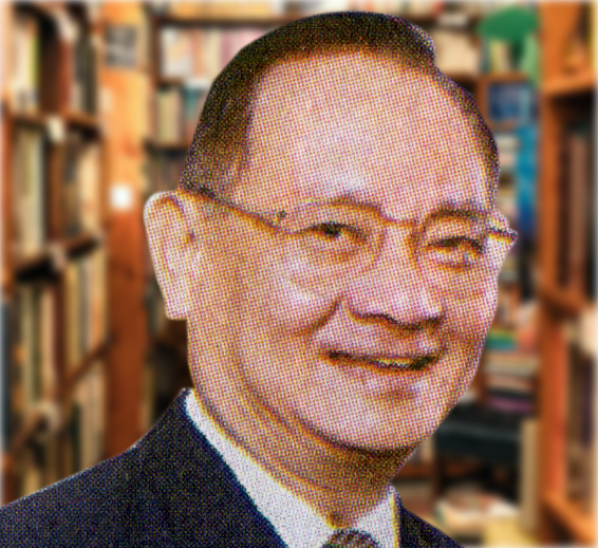- As secretary of the health department, he introduced his country’s first generic drug law, giving Filipinos an alternative to costly brand-name medicines. The counterattack by big pharmaceutical companies and their allies only made BENGZON stand his ground more firmly.
- He committed the government to placing both the knowledge and the means for rational family planning in the hands of all Filipinos, a position that went against the powerful Roman Catholic Church.
- Beyond health challenges, BENGZON who was known for his acumen and discretion was tasked by the president to guide sensitive negotiations between the government and its armed opponents as head of the Peace Commission. He was also a key figure in formulating the Philippine position in critical military base negotiations with the United States.
- The RMAF board of trustees recognizes his courageous demonstration that urgent social goals, however strongly opposed, can be achieved through the machinery of democratic government.
In the wake of a great political victory such as the one that toppled dictatorship in the Philippines in 1986, it is heroic to be in government. Buoyed by acclamation and euphoric hopes, many rally to the task. But it is different when the cheering stops and when many old problems seem intractable after all. In the Philippines, as personal ambition, disillusion, and the frustrations of day-to-day problem solving took their toll of the original crusaders, ALFREDO R. A. BENGZON stayed the course.
Son of a distinguished jurist, BENGZON studied at Ateneo de Manila and earned his medical degree at the University of the Philippines in 1961. Years of specialized training abroad followed. Returning to Manila in 1967, he established a practice in neurology and became a pioneer in medical services management.
Martial law made him a political man. In 1983 he quietly joined others to ponder how government could be recaptured for the people. Later he became part of the brain trust guiding Corazon Aquino’s rise to power. After the EDSA Revolution he joined her cabinet.
As secretary of health, BENGZON headed the Philippines’ third largest government department. Using his well-honed management skills he launched a thorough reorganization, weeding out corrupt holdovers from the old regime to make way for honest talents from the ranks. By ending institutionalized overpricing of medical supplies sold to his department by favored providers, he saved millions for essential operations. Meanwhile he emphasized public education— noting that it costs less to prevent a disease than to cure one—and mobilized support to make health a national priority.
“In the health sector,†he said, “public welfare must have primacy over private interests.†He therefore introduced his country’s first generic drug law, giving Filipinos an alternative to costly brand-name medicines. The counterattack by pharmaceutical companies and their allies in the medical profession was angry and often personal. BENGZON stood his ground, following his own advice that, in government service, “one must always be willing to pay the price.â€
In a country where population has more than tripled since independence, BENGZON committed the government to placing both the knowledge and the means for rational family planning in the hands of all Filipinos. Such a stand aroused opposition within the powerful Roman Catholic Church. But BENGZON insists his program meet compelling public health needs and that conscience alone should guide individuals in such intimate family matters.
Known for his acumen and discretion, BENGZON was tasked by the president to guide sensitive negotiations between the government and its armed opponents as head of the Peace Commission. He was also a key figure in formulating the Philippine position in critical military base negotiations with the United States.
As a social reformer determined to place the government squarely on the side of the disadvantaged, BENGZON is persevering, pragmatic, and unfailingly positive. “Government is not merely a necessary evil,†he points out, “it is the key to our life as a nation.â€
In electing ALFREDO R. A. BENGZON to receive the 1991 Ramon Magsaysay Award for Government Service, the Board of Trustees recognizes his courageous demonstration that urgent social goals, however strongly opposed, can be achieved through the machinery of democratic government.
My family and I are deeply moved by the foundation’s gesture of honor to me. In honoring me, you honor our president and her government, and you affirm that the government’s authority and power are the shield and sword of our people, instruments for liberation from the bondage of societal inequity.
You also honor the men and women of the Department of Health and the Peace Commission, whose intelligence and hard work, professional skills and personal savvy, unyielding courage and unintimidated perseverance serve as the cutting edge of social reforms. And you honor the Filipino people who deserve nothing less than our very best.
This award is a celebration of the essence of Ramon Magsaysay, his common sense and uncommon passion, his authority and the power of his office—all of which he used in the service of our people so that “those who have less in life may have more in law.â€
Ours is a world and nation in rapid transition. Never have things changed more quickly than they do now. Never have we been more uncertain and confused. Never have we been in greater need of anchors to hold onto.
For Ramon Magsaysay that anchor was service to the people. To that I would now suggest that our nation requires service from the people. Too long we have forgotten that only a people who serve, deserve to be served.
In this light, two new qualifications are added to the call for a Ramon Magsaysay for our times. The first is: what are we doing to get the Magsaysay we need? The second is: the Magsaysay we seek must not just make government serve us; he must move us to serve one another.
Enunciating this call for service to the people and for service from the people, and with great pride and even greater humility, I accept this award.

